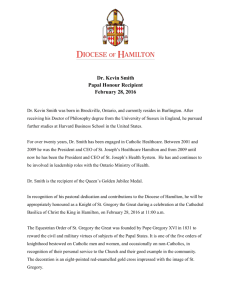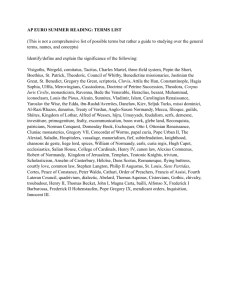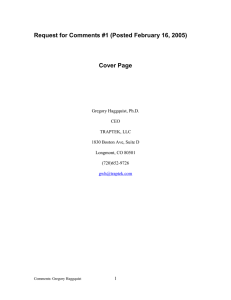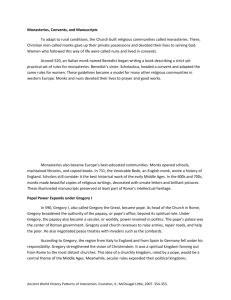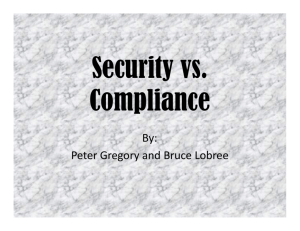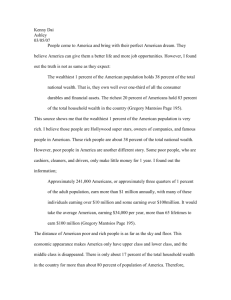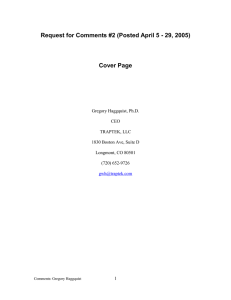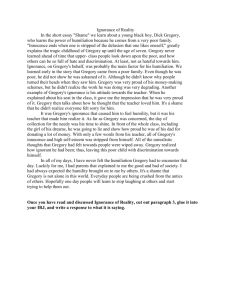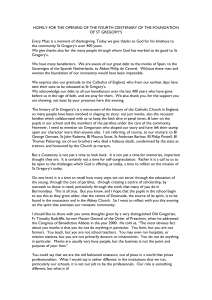Social Media Law
advertisement
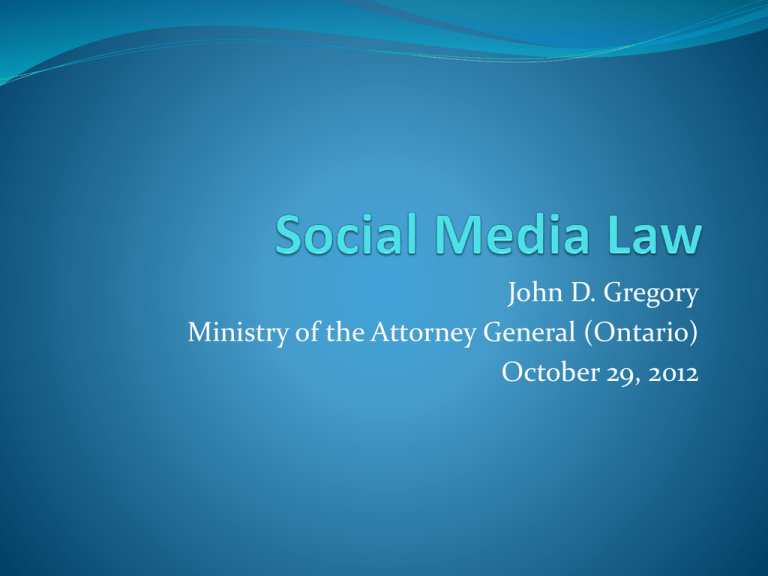
John D. Gregory Ministry of the Attorney General (Ontario) October 29, 2012 Overview Introduction Communications Security Employment Evidence Government Personal Conclusion John D. Gregory Social Media Law 2 Introduction Definition A plea from my high-school Latin teacher Media: neuter plural Extremely varied in operation, impact Free Diverse users Interactive (web 2.0) Much user-generated content Characteristics ‘Public intimacy’, immediacy, collaboration Maybe anonymity Enforcement of legal rights can be hard or hazardous John D. Gregory Social Media Law 3 Communications The usual rules apply Defamation Intellectual property EU Court: move from ‘substantial copy’ test Harassment Privacy Misrepresentation – civil and criminal (fraud) Cyber-bullying may be next (if not already barred) Liability of intermediaries is not resolved Interaction of providers and law enforcement John D. Gregory Social Media Law 4 Security Social media are in the cloud So risks are similar to discussion that follows Open to the world – decentralized and mobile A lot of celebrities have been hacked (8/10 of ‘most followed’ on Twitter) or impersonated A lot of people have very weak security Social media sites may not offer much security Lend themselves to social engineering attacks Impact of BYOD (bring your own device) policies John D. Gregory Social Media Law 5 Employment Who owns rights? Who owns Twitter followers? LinkedIn profile? Right to monitor employees: Manage expectations General use of social media in recruiting Disclosure of passwords (BAD idea) Solicitor-client privilege in employer systems Employee use of personal sites Free speech vs ‘loyalty’; watch who you friend dismissal, actions for poisoned work environment Regulatory issues for employers e.g. illegal disclosures John D. Gregory Social Media Law 6 Evidence Issues of proof in general = other electronic evidence Evolving, authentication likely to get more complex Whose content is subject to e-discovery? How closely linked to employer etc Admissibility Facebook discovery cases (s.m. often red herring) Wikipedia cases (watch the history, discussion) Use of social media in the courtroom Notably by jurors for comment, for research John D. Gregory Social Media Law 7 Government Ontario Deputy Ministers instructed to ‘engage’ with Twitter Mainly a ‘push’ use – links to existing or new content Need for bilingual tweets Limits to interactivity (four levels of approval) Some potential for interaction with known stakeholders Authentication of those we hear from? No legal advice (and limited ability to disclaim) Appropriateness of private communication via social channels Reluctance re personal exposure of public servants Concerns about comments on publications (e.g. blogs) TOU of social media sites: indemnities and immunities problematic John D. Gregory Social Media Law 8 Personal Digital assets on death Many social media close out account and delete contents on death Ability of executor to access data (of value) limited by terms of use, practicalities Use of ‘lost password’ function if basic access OK Secret content – online as off Private services like Legacy Locker (but effective?) Legislation in US – states and uniform John D. Gregory Social Media Law 9 Conclusions Everything old is new again Mix of personal and professional creates risks (and the fun) Social does not mean to be taken casually User-generated content is large source of risk Privacy issues are important and unresolved Marketing rules (e.g. lawyer advertising) are relevant Businesses (and law firms) need a careful comprehensive plan for company and employee uses John D. Gregory Social Media Law 10
